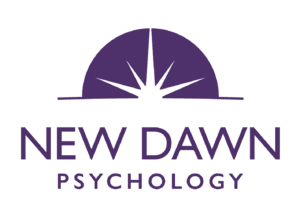Workplace stress has become “endemic in the post pandemic world.” The Health and Safety Executive defines work-related stress as “the adverse reaction people have to excessive pressures or other types of demand placed on them at work.”
The latest estimates from the Labour Force Survey show that stress, depression, or anxiety account for 50% of all work-related ill health cases. In general, the rates are significantly higher among female workers as well as medium and large businesses. Furthermore, they have been compounded by the coronavirus pandemic.
The main causes of job-related stress, depression and anxiety, are workload pressures including tight deadlines, too much responsibility, and a lack of managerial support. These stressors increase presenteeism, workplace conflict, mistakes, absenteeism and staff turnover, whilst decreasing psychological safety, productivity, and profits.
So, what can we do to turn the tide on stress in the workplace? Given that happy and effective employees make for healthy and productive workforces, it is important that we find ways to reduce stress and improve the wellbeing of individual employers, managers and employees. This not only improves their performance and job satisfaction, so they want to stay in their jobs, but it also promotes healthy workplace behaviours and cultures, and thriving businesses.
There are numerous ways to reduce stress in the workplace including practising relaxation techniques, improving time and task management skills, and making time for regular exercise. Another key tool is emotional intelligence (EQ), the ability to manage our emotions so we can be more flexible, detach from issues that are not in our control and express how we feel assertively and constructively.
EQ affords us emotional competence, self-confidence, flexibility, a growth mindset, empathy, social skills and patience. Not only do these facilitate resilience, positive attitudes, and improved personal well-being, research indicates they also predict success, increase our earnings, and improve our performance.
Individuals with higher EQ are able to mitigate the effects of stress more successfully than those with lower EQ as they are able to adopt appropriate coping methods to avoid conflict and aggressive behaviour. EQ empowers us “to handle interpersonal relationships judiciously and empathetically. It is the key to both personal and professional success.”
So, how do we improve our EQ? Here are 3 crucial steps:
1. Flipping the focus to feelings
Our emotions are our guidance system, akin to the sat nav systems in our cars and on our phones. By focussing on our feelings rather than our thoughts, we can improve our emotional literacy, the building block of EQ. Emotional literacy is how we put emotions into words, understand the messages our emotions communicate, and express them productively.
When we have an emotional reaction to something, it’s the resulting behaviour, not the emotion, that is seen. Therefore, if we want to change our behaviour, we need to be aware of, and in control of, our emotions. Increasing our emotional vocabulary is part of this process. Being able to name and decipher the nuances in our emotions allows us to communicate how we are feeling to others.
Research shows that putting negative emotions into words can reduce the physiological effect that the emotion has. Less internal impact lowers the force of the resulting behaviour, meaning fewer conflicts in the workplace and better working relationships.
Furthermore, when we understand our emotions better, we are more able to empathise with others, and approach conversations with more compassion and less confrontation. This also improves psychological safety in the workplace as we feel more secure and supported.
2. Meeting emotional needs
When we recognise and meet our own emotional needs, we fulfil our potential as fully functioning, emotionally intelligent and healthy human beings, exuding both self-confidence and self-esteem. Our emotional needs include being valued, safe, accepted, seen and heard.
Everyone has their own unique set of emotional needs, so we must discover what ours are in order to be able to meet them. This is when we can rely on our emotional literacy for help. Feelings of hurt, fear or anger will always let us know when we have needs that are not being met, either by ourselves or by others. Being able to identify these feelings and understand their message empowers us to take appropriate action to meet the need, creating satisfaction and a boost to our self-esteem.
3. Banishing limiting beliefs
Limiting beliefs are negative judgements about ourselves that we believe to be true. We tell ourselves ‘I’m not good enough’, ‘I’m unworthy’, ‘I’m weak’, or ‘I’m a failure’.
Most limiting beliefs are formed when we are children and adolescents. They are strongly held, rigid and inflexible. We maintain them by focussing on information that supports them and ignoring evidence that contradicts them.
Limiting beliefs are self-fulfilling prophesies that hold us back. They work like a filter. If we think we’re unworthy we’ll look for the evidence to prove it. The ‘evidence’ we find is the equivalent of fake news. We find fake ‘evidence’ to support what is effectively a myth.
By learning to identify and combat limiting beliefs we can reframe how we think about ourselves and train our minds to see our strengths rather than our weaknesses in everyday situations. This motivates us to stretch ourselves and achieve more, which boosts our self-esteem.
As a psychologist specialising in stress management, I continue to witness the powerful transformations that people experience when they improve their emotional literacy, meet their emotional needs and banish their limiting beliefs. As fundamental building blocks to improving EQ, they empower us to better understand ourselves and those around us. The results are positivity, problem-solving, poise and passion. These qualities negate the negative impact of stress.
It has been argued that the importance of EQ in the workforce holds the same, if not higher, importance than IQ, and is critical in leadership:
“To enhance wellbeing, we need more line managers with emotional intelligence (EQ). We need people who manage by praise and reward, and who realise when you have unrealistic workloads or unmanageable deadlines. We promote people based on technical expertise, not their people skills and that’s wrong – there should be parity between the two. When you select someone for a managerial job it should be somebody who has the technical skills, but also the people skills. From shop floor to top floor, we need more line managers with EQ.”
Leaders with emotional intelligence embrace change, relate to others, learn from their mistakes, maintain a healthy work-life balance, are curious, and see the positives in other people and situations. To summarise, emotionally intelligent leaders are successful because they understand what matters in the workplace and recognise that stress management is a matter of emotional intelligence.
References
- Why the Epidemic of Stress is Endemic in the Post Pandemic World and How to combat it (managementstudyguide.com)
- Work-related stress and how to manage it: overview – HSE
- Work-related stress, anxiety or depression statistics in Great Britain, 2021 (hse.gov.uk)
- Dictionary definition of ‘Emotional Intelligence’ Powered by Oxford Languages · Cortana · Bing Translator
- Professor Cary Cooper: How to improve workplace wellbeing – Work in Mind

